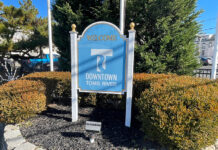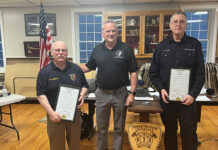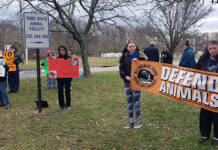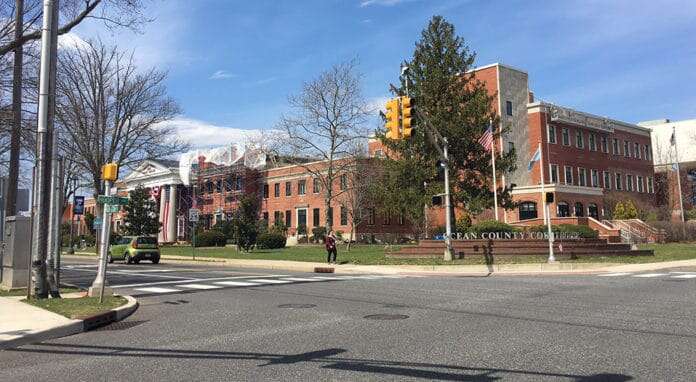
It was the annual town meeting – held 200 years ago in our town – and the people then gathered here were doing what people around the state and country were doing as well.
It was March 12, 1822.
The Annual Town Meeting
As a remnant of colonial America times, town citizens met annually to organize their local government for the coming year.
In the early nineteenth century in New Jersey – an agricultural state then – these meetings were typically held before the planting season.
For us here in Toms River – then known as Dover Township – the meetings were held in March. Our “Dover Town Book” records these annual gatherings in handwritten minutes from 1783 to 1861. (All records from 1767 {when our town was created by an act of the provincial assembly} to 1782 {when the British attacked and burned the village of Toms River} were lost to history.)
The minutes were written in long hand by the town clerk and are a concise record of what was decided upon at the meeting.
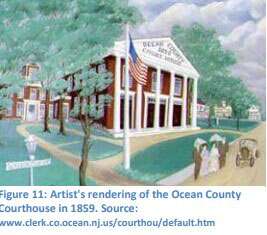
According to the 1822 minutes, the gathering was held at the “home of Elijah Robins.” The word “home” is probably a misnomer. Perhaps it was Elijah’s residence; more likely, it was a public place – a tavern – owned and operated by him. Taverns were where public business was regularly conducted in the eighteenth and nineteenth centuries. The Ocean County Board of Chosen Freeholders first met, for example, in 1850 at the “Thomas Barkalow House” – later known as the “Ocean House” in downtown Toms River.
As for Elijah Robins, Robins Street, in today’s downtown, spelled “Robbins” Street, may be named after him or a relative. The Robins family was prominent in early town history.
The minutes tell us that the “business acted upon” was the “election of officers.” Joseph Lawrence was elected as town clerk and tax collector. James Rogers was elected as assessor. Benjamin Stout and James Irons were elected as overseers of the poor. Marcus Parker and John Cranmer were elected as overseers of the highways. Irons, Parker, and Stout, along with James Allen and Job Potter, were elected as constables.
The Age Of Transportation
The one and only item of business in 1822, according to the minutes, beyond electing officers, dealt with roadways.
It was the “age of transportation” in New Jersey – indeed, America, as well. During these early federal years – the first half of the 1800s – our state and country were literally on the move. In New Jersey, in quick order, there were many transportation improvements:
Roads: The State government chartered 51 privately owned turnpikes between 1801 and 1829, nearly all of them north of a line from Perth Amboy to Burlington. Turnpike owners could take over existing roadbeds and they could erect a pike, or barrier, at intervals in the road, and turn the pike aside on payment of a toll. Today’s word “turnpike” comes from this practice.
Canals: The Morris Canal and the Delaware & Raritan Canal were built during this time – both chartered by the State.
Bridges: Bridges were constructed across the Raritan, Passaic, Hackensack, and Delaware Rivers.
Railroads: Railroads were approved for Paterson and Jersey City in the 1830s.
Here, there is no record of private toll roads authorized in our part of New Jersey. History tells us that privately-commissioned toll roads were a phenomenon in areas north and west of the shore region.
Instead, at that annual meeting held 200 years ago, the minutes of Dover Township state “it was resolved that two hundred dollars be raised for the repair of the highways.”
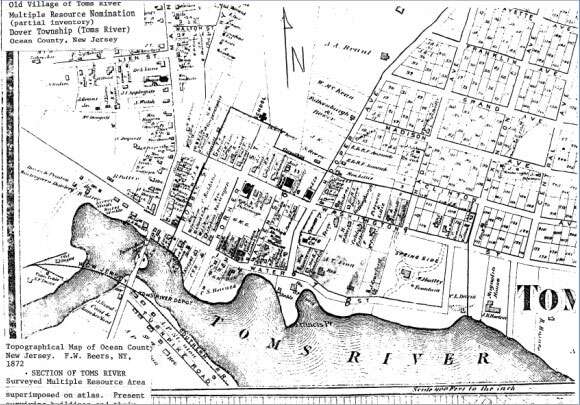
In 1821, it was recorded in the minutes that Richard Phillips “should be paid one dollar fifty cents for building a small bridge over the brook at Old Mill on the south side of Toms River.”
In 1823, it “was resolved that one hundred dollars be raised by tax for the repair of the roads.”
There are many years of such publicly funded approvals during this period.
History Repeats Itself
1822 – 200 years ago – local elected officials planning for the future, building and maintaining bridges, roads, and highways.
Sounds familiar to us, today.
Yes – history does repeat itself!
SOURCES: The “Dover Town Book: 1783-1861” and New Jersey: A Mirror on America by John Cunningham, Afton Publishing Co., 2006
J. Mark Mutter is the retired Toms River Clerk. He served as a member of the Dover Township Committee and as Mayor in 1993 and 2000. He chaired the Township’s 225-year anniversary committee in 1992 and its 250-year anniversary committee in 2017, and its 200-year Constitution Bi-Centennial Committee in 1987. He is writing a book on the history of Toms River.

